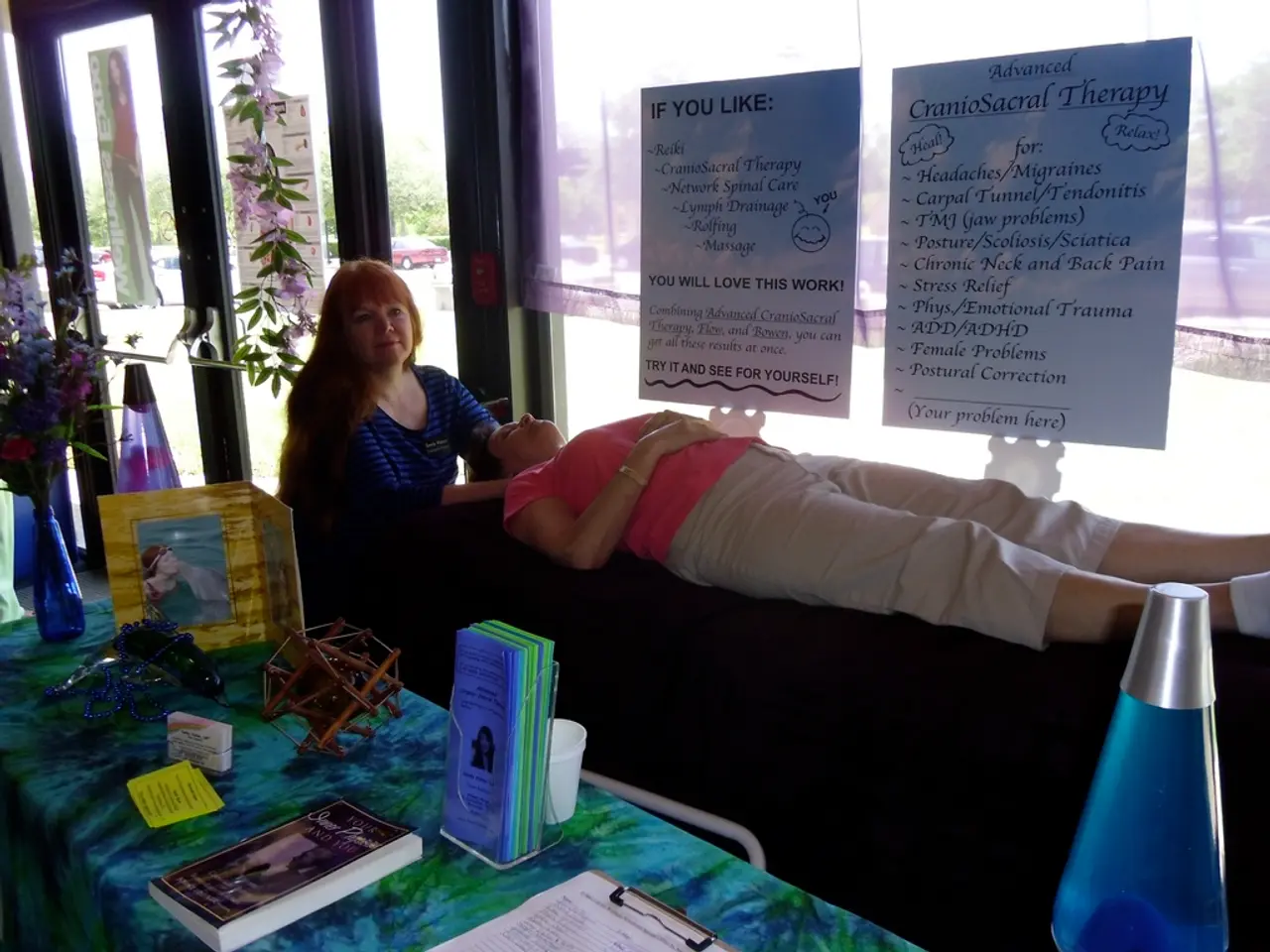Overcoming Demotivation in Depression: The role of Exercise and Social Interaction
For those grappling with depression and physical disabilities, finding a suitable exercise regimen can be a daunting task. However, a range of adaptable and effective exercise options are available to help manage both physical and mental health challenges.
Depression, a condition characterized by feelings of sadness, hopelessness, and a loss of motivation, can be all-encompassing, affecting a person's ability to perform daily activities. A persistent lack of motivation is a characteristic symptom of depression, making the prospect of starting an exercise routine seem insurmountable.
However, socializing can help a person with depression feel less alone, and can have a profound impact on their motivation. Exercise, in particular, can be a powerful tool in boosting mood and increasing motivation.
For individuals with physical disabilities, suitable exercise options include seated exercises, water aerobics, adaptive sports, resistance training, yoga, tai chi, balance, and stretching exercises. These can be tailored to individual abilities and preferences to maximize both physical safety and mental health benefits.
Chair exercises, such as arm and leg lifts, seated marching, and chair yoga, focus on both stretching and strengthening muscles safely from a seated position. Water aerobics, due to buoyancy, reduces joint stress, making it ideal for those with mobility challenges. It improves cardiovascular health, strength, and flexibility with lower injury risk.
Strength training, using light weights or resistance bands, helps build muscle tone and strength, and is beneficial for both physical and mental health. Yoga and tai chi, mind-body exercises that enhance flexibility, balance, and relaxation, have been found effective and acceptable for treating depression and can be adapted to different ability levels.
Adaptive sports programs, offering adaptive versions of sports like wheelchair basketball or cycling, provide physical activity alongside social engagement, which is important for mood improvement and reducing isolation. Balance and stretching exercises can help enhance stability and mobility, preventing falls and maintaining mobility for individuals with physical disabilities.
Dance classes for disabled or elderly individuals promote coordination, balance, social interaction, and enjoyment, contributing positively to mental well-being.
Regarding exercise intensity and effectiveness for depression, moderate to high-intensity aerobic exercises, such as walking or jogging, and strength training have shown significant benefits in reducing depressive symptoms. However, exercises like yoga and tai chi, which are lower intensity but focus on mindfulness and movement, are also effective and often better tolerated by individuals with physical limitations.
In addition to exercise, reducing stress and creating realistic expectations can help enhance motivation. Avoiding triggers such as drugs and alcohol can help prevent a deep low that reduces motivation and possibly leads to dependence. Exercise is a natural way to increase mood-boosting chemicals and may reduce some effects of depression. Meeting small, manageable targets every day can boost a person's self-esteem.
Moreover, maintaining a regular sleep schedule is crucial for managing depression. Going to sleep and waking up at the same times helps train the body to sleep and ensures that a person gets enough sleep every night. The National Sleep Foundation recommends that adults aged 26-64 years get 7-9 hours of sleep per night, but the right amount varies from person to person. Refraining from taking naps during the day can help a person sleep at night and reach a deep phase of sleep.
If a person with depression experiences thoughts of hurting themselves or someone else, hears voices or sees objects or people that are not there, or has thoughts of committing suicide, emergency medical attention is necessary.
In conclusion, a combination of exercise, stress management, and good sleep hygiene can significantly improve the lives of individuals with depression and physical disabilities. Consulting a primary care physician is the first and most important step toward finding or improving motivation for people with depression.
Exercise, particularly those that boost mood and increase motivation, such as yoga and tai chi, can be effectively integrated with mental health strategies to address depression in individuals with physical disabilities. Maintaining a regular sleep schedule, as recommended by the National Sleep Foundation, is also crucial for managing depression and overall health-and-wellness.




